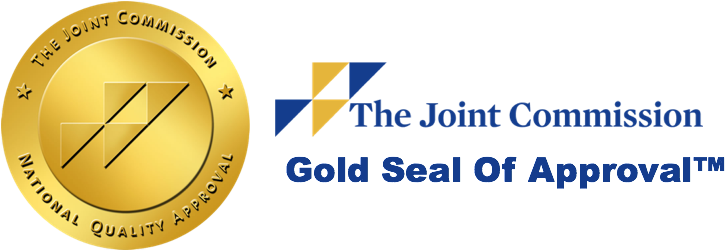Understanding the best treatment to help you manage addiction or other co-occurring disorders is key to helping you get on the road to recovery. Treatment is roughly divided into residential/inpatient programs and outpatient programs. There are further differences in the length of stay, the intensity of treatment, and the types of treatment offered within these two broad categories.
The primary distinction between inpatient vs outpatient rehab programs is that people live in the treatment center while in an inpatient program. People in outpatient treatment continue living at home. However, the two options aren’t mutually exclusive, and many people in need of treatment transition from one to the other.
The Advantages of Residential Treatment

In residential treatment, a person with an addiction or mental illness typically remains in a hospital treatment center under the care of doctors and medical professionals. This type of care is often necessary for people who have a severe disorder or have not been successful in outpatient treatment.
24-Hour Care
Inpatient treatment can be very expensive, but it has many advantages. For one, it allows people to receive around-the-clock care from trained professionals. This is important for people who are detoxing from drugs or alcohol, as they may experience withdrawal symptoms that require medical attention. Individuals dealing with mental health issues have the opportunity to try medications under a doctor’s care.
No Distractions
In addition, inpatient treatment provides a structured environment where people can focus on their recovery without distractions from their normal lives.
In the battle against addiction, having a supportive and stable environment in which to recover is crucial. The temporary isolation of inpatient treatment can ease the difficulties of resisting temptation from old friends, familiar places, and negative habits in the intense early stages of fighting addiction or mental health issues. This protected environment provides a safe space where individuals can focus on their recovery without experiencing constant triggers from the outside world.
Provides Connection With Others
One of the greatest benefits of a residential program is the opportunity to connect with others struggling with addiction and mental health. Inpatient treatment allows people to meet other people who are going through similar experiences. This can provide much-needed support and camaraderie during what is often a difficult time.
The Main Disadvantage of Residential Treatment
One of the biggest drawbacks of residential or inpatient treatment can be a lack of preparation for the ‘”real world.” Some people struggle to maintain long-term sobriety if they move straight from this protected environment back into their everyday life. For this reason, many professionals recommend additional support in the form of sober living homes or outpatient treatment programs.
While the idea of a “90-day rehab” experience might seem appealing to those struggling with substance use disorder (SUD), it is important to note that this is by no means a guarantee of lasting sobriety. While inpatient treatment may provide some initial support and structure for a person in recovery, it does not address a number of underlying mental, emotional, and spiritual factors that can impact long-term success. Studies show that as many as 56% of rehab graduates will relapse within the first year after being discharged from an inpatient program.
Advantages of Outpatient Treatment
Intensive Outpatient Programs (IOP) offers a minimum of nine hours of service per week in three three-hour sessions. Some programs, however, provide more sessions per week and/or longer sessions per day, and many programs become less intensive over time. IOP allows individuals to remain in their own homes and communities, which may improve their adjustment to community life.
Some of the advantages of an outpatient treatment program are:
- Less expensive than inpatient care
- Access to obligations and responsibility in life
- Flexibility
- Patients tend to receive more one-on-one time with counselors because therapy groups are smaller
- Access to various addiction experts and medical staff
Though the effectiveness of any program depends on how well they meet the needs of each specific person, there is a misconception that IOP is not as effective as inpatient treatment for SUD and mental health disorders. However, the research says otherwise. A 2014 study concluded that intensive outpatient programs have similar outcomes to inpatient or residential programs.
Disadvantages of Outpatient Treatment
The main disadvantage of outpatient rehab for substance use and mental health treatment is that it is not as structured or intensive as inpatient treatment. Also, if a patient needs medical treatment for withdrawal symptoms or other effects, inpatient treatment may be required.
Another disadvantage of outpatient treatment is the triggers associated with friends who continue to use substances or places where they once used substances. Being surrounded by old cues increases the chance of relapse. Inpatient settings or recovery residencies help alleviate temptations and reduce risk factors. Inpatient treatment facilities provide a structured and safe environment away from old triggers and friends. These facilities also offer round-the-clock support from trained professionals.
Recovery Residences
Recovery residencies, often referred to as sober living homes, are another option that can provide long-term support and accountability. This type of setting is typically less expensive than inpatient treatment and can be beneficial for those who need more time to transition into outpatient recovery.
Ultimately, the decision of which type of treatment to pursue should be made in consultation with a qualified professional. The number of options can seem overwhelming, and a good counselor can help you identify what treatment path will work best for your needs.
Get Started With the Phoenix
When deciding how to treat a substance use or mental health disorder, it is important to consider all of the available options. For some people, inpatient treatment may be the best option. This type of treatment involves staying at a hospital or residential facility where you can receive around-the-clock care and support. Inpatient treatment can be very intensive and is often used for people struggling with severe conditions or for people who have been unable to find relief through other treatment methods. Outpatient treatment typically involves meeting with a therapist or counselor regularly, group therapy, and possibly taking medication as part of your outpatient treatment plan. When choosing between inpatient and outpatient treatment, it is important to consider your specific needs and situation. The Phoenix is among the top mental health facilities in Utah and offers both inpatient and outpatient care for substance abuse rehab and mental health recovery. Talk to a mental health care provider about your options. Call Phoenix Recovery Center today at (801) 438-3185.








